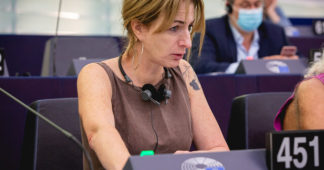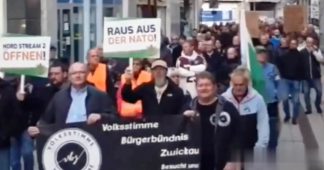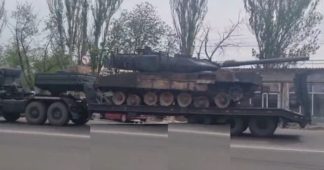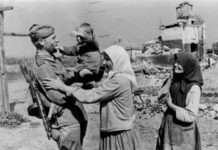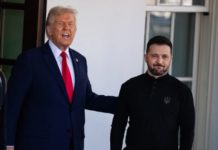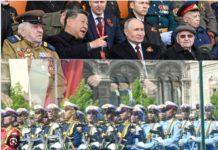Not only Germany, but also the Baltic countries have forbidden Victory Day celebrations and gatherings, accompanied by flowers at the monuments that have been destroyed, or by victory banners, or by war songs. Latvia imposes fines ranging from EUR 350-1200.
EU state bans WW2 victory celebration
The Baltic state of Latvia has outlawed any celebrations of the Soviet Union’s victory over Nazi Germany. The parliament in Riga fast-tracked the measure Thursday, banned rallies, marches, picketing and use of fireworks on May 9, unless it is to support Ukraine.
“It is in our interests to prevent events that undermine our values, split society, glorify military aggression and contribute to false coverage of historical events,” said Ieva Brante, chair of the legislature’s human rights commission.
Only activities dedicated to “Europe Day” will be allowed under the new law, which is intended to “protect the interests of state and public security, prevent unrest, protect the health and morals of the population.”
This would allow expressions of solidarity with Ukraine, glorification of the EU, or anything the Latvian government designates as non-threatening to its national interests.
The news did not take Moscow by surprise. Last year, Riga designated May 9 the ‘Day of Remembrance’ for Ukrainian soldiers and civilians and authorized the destruction of monuments to Soviet soldiers.
“Are we talking about the fascist Riga where open Nazism flourishes?” Andrey Lugovoy, a member of the Russian State Duma, told reporters on Thursday, when asked about the news.”Where every year they hold a ‘parade’ of Latvian Waffen-SS legionnaires, and this year proposed to name a street or a square after them. That Riga?”
“Estonia, Latvia, Lithuania, they’re too far gone. These statelets don’t only bite the hand that fed them, but try to defecate in the corners as well,” he added
The three Baltic states were part of the Russian Empire before declaring independence in 1918, and of the Soviet Union in 1940-41, and again between 1945 and 1991. Upon declaring independence, all three states insisted the Soviet period amounted to illegal occupation, and glorified those who collaborated with Nazi Germany as patriots.
Latvia joined the EU and NATO in 2004, along with its Baltic neighbors. About a quarter of its 1.8 million residents are Russian-speakers, who often face discrimination. (RT)
We remind our readers that publication of articles on our site does not mean that we agree with what is written. Our policy is to publish anything which we consider of interest, so as to assist our readers in forming their opinions. Sometimes we even publish articles with which we totally disagree, since we believe it is important for our readers to be informed on as wide a spectrum of views as possible.


